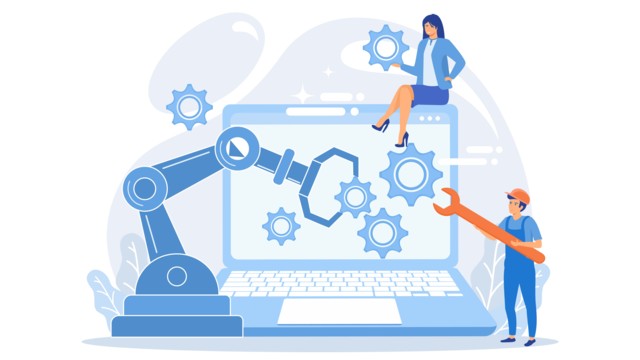
It’s impossible to expand a business without investing in technology and the cost is always major consideration. Retail purchases might give you an immediate cost saving, but this could come back to bite in the long run.
Here’s a familiar scenario. You run an SMB and need to upgrade the laptops for your sales team. It’s a significant investment, and there’s never a good time for a spend like this. Perhaps you’ve been delaying it for months or even years?
So, to resolve your immediate problem, do you head down to your local retailer and get a good deal on 20 laptops?
Or do you take a minute to think ahead and consider a Managed Services Provider — an expert third-party who’ll source and manage the devices for you?
The temptation to buy retail looks good on paper but saving a few dollars upfront can cost you far more down the line. Here’s why…
Not all devices are built for business
When you purchase a laptop (for example) from a retailer, no matter how respected their brand is, it’s common for chipsets and other hardware components in these models to be suitable for the needs of retail buyers rather than business buyers. This can cause compatibility issues when you try and integrate the devices with a business network.
Your retail saving can get swallowed by hidden costs
What happens if you’ve purchased several devices from a retailer and you quickly realize they don’t integrate with critical elements of running your business, like printers, or booking software for example? With the money already laid out, and staff counting on these devices to do their jobs, there’s more money needed to fix the problem. Very quickly, your initial savings could pale in comparison to the cost of getting your devices integrated properly if you don’t know how to do it yourself.
That’s just the financial cost. There’s also hours of wasted time dealing with vendors and software suppliers. The stress on staff expected to solve technical problems outside their main skillset can also be significant. For businesses selling their knowledge, like accounting or legal firms, operations may slow or stall entirely until the issues can be resolved.
Software upgrades need to be planned
A big lesson was learnt when Microsoft launched Windows 11. It was realized the software wasn’t compatible with many proprietary or industry-specific software applications a huge number of businesses rely on to manage their day-to-day operations. Booking & inventory systems for example. This caused grief for many businesses who then had to invest time & expertise to uninstall Windows 11, revert to a legacy operating system that worked with the software, then wait patiently until a Windows 11 compatible version was available.
Similarly, businesses need to be careful not to buy computers bundled with Microsoft Office for Home rather than Microsoft Office Professional. That simple oversight can cost hundreds of dollars per device to roll over to Professional so it works within a business ecosystem.
MSP equals peace of mind
If you’ve been frustrated by any of these things, a Managed Services Provider (MSP) can make life a lot easier for you. In the examples above, an MSP would have sourced business grade devices with the right operating system installed so compatibility is guaranteed. And usually built into the cost, any operating issues over the life of the device are resolved by their support team.
For a business that buys their devices from a retailer or even directly from a vendor and run into issues, they’re stuck with the equipment and will likely need to spend thousands of dollars (and untold hours) retrofitting the correct systems.
For a business that uses an MSP, the risk of getting it wrong is shifted from the business to the MSP. The MSP is frequently buying and installing equipment for their customers which means they have a better knowledge of what will work within your business environment. And if there are issues, it’s on the MSP to fix them.
The reality is that it’s nearly impossible to guarantee any level of standardisation across a fleet of devices unless you have an intimate knowledge of every specification, and the nuts of bolts of how each device is integrated into a complex business IT system.
MSP’s look after hardware warranties
If you have a device that fails, your MSP will handle the warranty process for you as well as a temporary replacement if it’s needed. Needless to say, this is much more convenient than the time it would otherwise take to resolve with a retailer if you’d purchased the device yourself.
MSP’s have buying power
One of the major pros of dealing with an MSP is their buying power. At efex, we have established relationships with multinational device providers such as Dell and HP, which gives economies of scale that we pass onto our customers. The relationships we have with our vendors on behalf of our customers gives us access to commercial grade equipment and pricing schedules not available to the average SMB.


